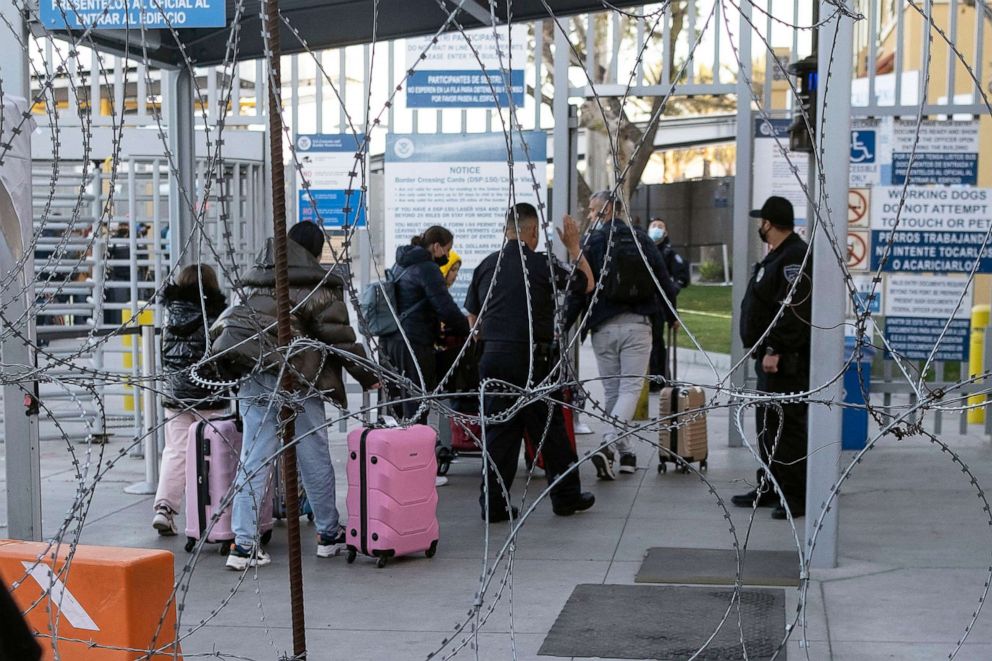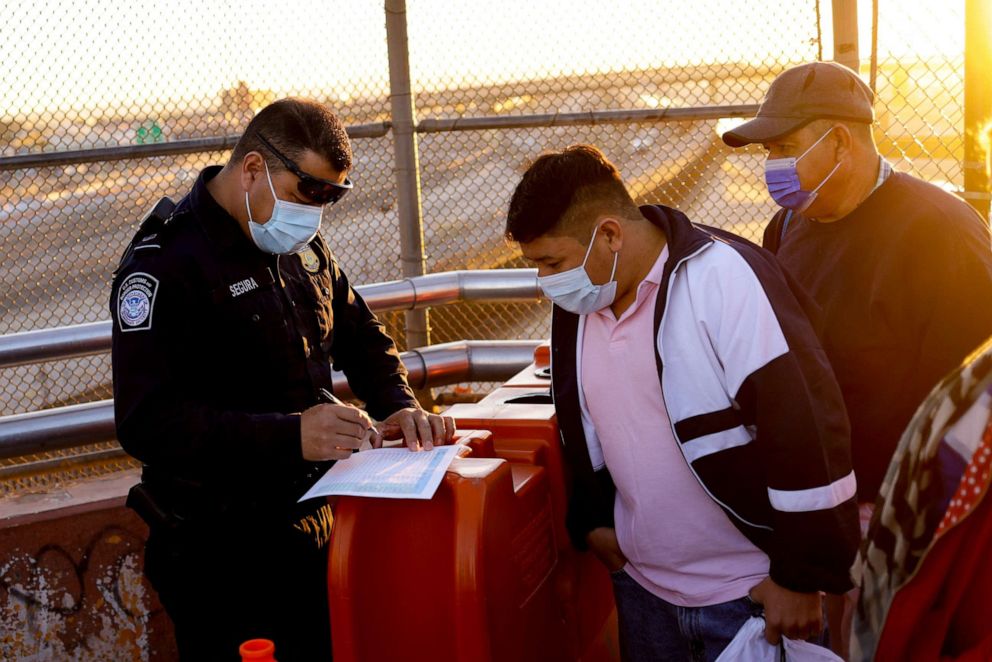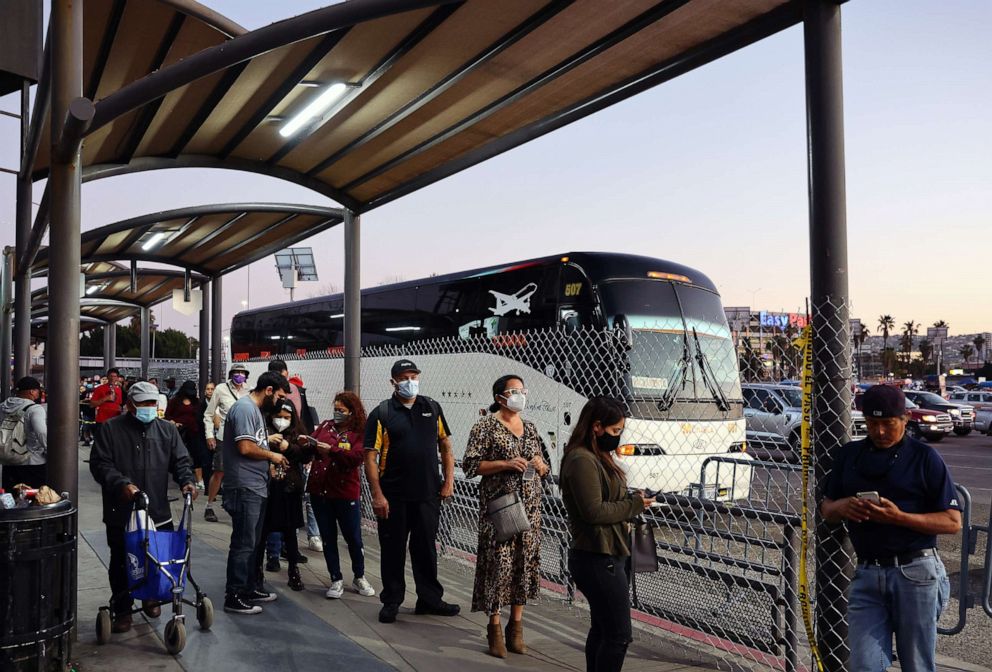Biden administration moves forward with plans to lift Title 42 border restrictions
The decision comes amid concerns that border crossing attempts could spike.
The Department of Homeland Security is expected to move forward this week with lifting Title 42 restrictions -- the Trump-era order giving the government authority to expel migrants at the southern border under a public health emergency -- two government officials told ABC News Wednesday.
Democrats and immigrant advocates have strongly opposed the policy, citing concerns over the limits it places on migrants seeking asylum and other forms of humanitarian relief.
Senate Majority Leader Chuck Schumer said he has been "deeply disappointed" in the Biden administration for not ending the Title 42 rapid expulsion protocols and he specifically referenced the risks posed to Ukrainian families.
"This is not who we are as a country," Schumer said earlier this month. "Continuing this Trump-era policy defies common sense and common decency. Now's the time to stop the madness. President Biden must fulfill his promise to fully restore our refugee laws, bring order to the border and stop the use of Title 42 to justify these deportations."

The Centers for Disease Control and Prevention is responsible for issuing the order, which was made in the name of public health under the Trump administration at the beginning of the global coronavirus pandemic. The agency is continuing its review and has yet to issue a formal decision, the CDC told ABC News in a statement.
"We are finalizing our current assessment and will release more information later this week," the CDC said in a statement.
The Associated Press was first to report Title 42 would soon be rescinded.
A court battle in which the administration faced a deadline to reimpose categorical expulsions of unaccompanied migrant minors or to ask an appellate court to intervene resulted in the administration rescinding the Title 42 policy for unaccompanied children once again earlier this month.
Rep. Michael McCaul, R-Texas, the ranking member on the Foreign Affairs Committee, told ABC News the administration is at fault for not more expansively implementing the Migrant Protection Protocols, a tool first used by President Donald Trump to force asylum seekers to wait in Mexico for their claims to process in the U.S.
"Reports the president will rescind Title 42 after refusing to properly implement MPP is setting the stage for hundreds of thousands more illegal encounters and the continued flow of deadly drugs that will poison our communities, as well as opening the door to further human trafficking and misery," McCaul said.

While the Biden administration has announced billions in funding for more than two dozen projects to expand and modernize U.S. border crossings, it's not clear those funds will be enough to sufficiently expand the processing capacity of Customs and Border Protection facilities.
The primary goal is to improve commerce and trade with new security and sustainability features so federal facilities catch up to the expansion of trade in recent years, administration officials said in announcing the funding plan last month. The $3.4 billion investment comes from the bipartisan infrastructure law.
Delays and long lines at land ports of entry are common, especially at the nation's highest trafficked regions, like San Diego. On the southern border alone, delays have cost 88,000 jobs and roughly $3 billion in economic output, according to a 2016 study of cross-border trade.
"Those inefficiencies translate into a weaker economy, fewer jobs and we can do better," U.S. General Services Administrator Robin Carnahan told reporters at an event announcing the border funding. "A lot of these land ports are beyond their useful life and their capacity in many ways and these upgrades that we're talking about today are long overdue."

The AP reported the repeal date for Title 42 is slated for May 23.
That timeline would put immense pressure on the U.S. Border Patrol to enact a plan that will allow for the safe processing of migrant taken into custody.
"If in fact they do get rid of it on May 23 they're barely giving us a month and a half to get prepared," Brandon Judd, president of the National Border Patrol Council, told ABC News Wednesday. "There's just no way to get an operation of that magnitude in place in that short of a period of time without there being complete chaos. It's impossible."
ABC News' Anne Flaherty contributed to this report.




